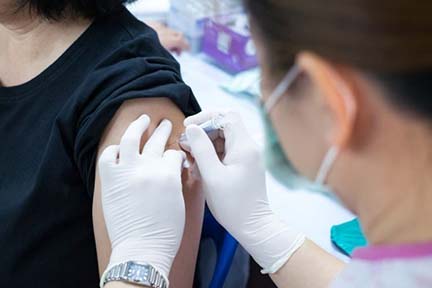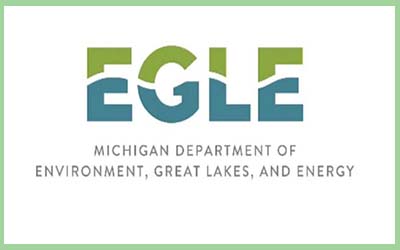
MDHHS renews call for Michiganders to get vaccinated
Press Release FOR IMMEDIATE RELEASE: Feb. 3, 2022 CONTACT: Lynn Sutfin, 517-241-2112, SutfinL1@ MDHHS renews call for Michiganders to get vaccinated, boosted LANSING, Mich. – Following FDA approval earlier this week of the Moderna COVID-19 vaccine for those ages 18 and up, the Michigan Department of Health and Human Services (MDHHS) is renewing its call to Michiganders to get vaccinated as soon as possible. “We now have two fully FDA-approved COVID-19 vaccines that have saved millions of lives throughout the pandemic,” said Dr. Natasha Bagdasarian, chief medical executive and chief deputy for health at MDHHS. “For Michiganders who have been waiting for this approval, now is the time to get the safe and effective COVID-19 vaccine and join the nearly 6.5 million Michigan residents who have already received their first dose. The vaccine remains our best defense against the virus as we continue to face omicron and any future variants.” MDHHS is urging Michiganders to complete the primary series of COVID-19 vaccination and then get a booster dose once they are eligible to ensure they are up to date with their protection against the virus. More information is available at Michigan.gov/COVIDVaccine. The Moderna vaccine, now known as Spikevax, was the second COVID-19 vaccine to be distributed in December 2020 and has shown to be better than 93% effective against the virus that causes COVID-19 and 98% effective in preventing severe disease. To date, more than 5.3 million primary and booster doses of the Moderna vaccine have been administered in Michigan and more than 65% of Michiganders ages 5 and older have gotten at least their first dose of one of the safe, effective vaccines. From Jan. 15, 2021, to Jan. 14, 2022, unvaccinated Michiganders accounted for 77.6% of COVID cases, 85% of hospitalizations and 83% of deaths. To learn more about the COVID-19 vaccine, visit Michigan.gov/ To schedule a COVID-19 vaccine near you, visit Vaccines.gov. For more information about COVID-19 in Michigan, visit Michigan.gov/coronavirus |











 Want to see more pictures like this, taken by Michigan state parks photo ambassador
Want to see more pictures like this, taken by Michigan state parks photo ambassador  Looking for a new podcast to get you through the winter months? Check out the DNR’s Wildtalk podcast, released on the first of each month with topics covering all things habitat, feathers and fur.
Looking for a new podcast to get you through the winter months? Check out the DNR’s Wildtalk podcast, released on the first of each month with topics covering all things habitat, feathers and fur.
 If you or someone you know is seeking valuable experience working in wildlife conservation – or just an interesting job that gets you outdoors – apply now for one of 60 summer positions with the DNR Wildlife Division.
If you or someone you know is seeking valuable experience working in wildlife conservation – or just an interesting job that gets you outdoors – apply now for one of 60 summer positions with the DNR Wildlife Division.
 Michigan’s
Michigan’s